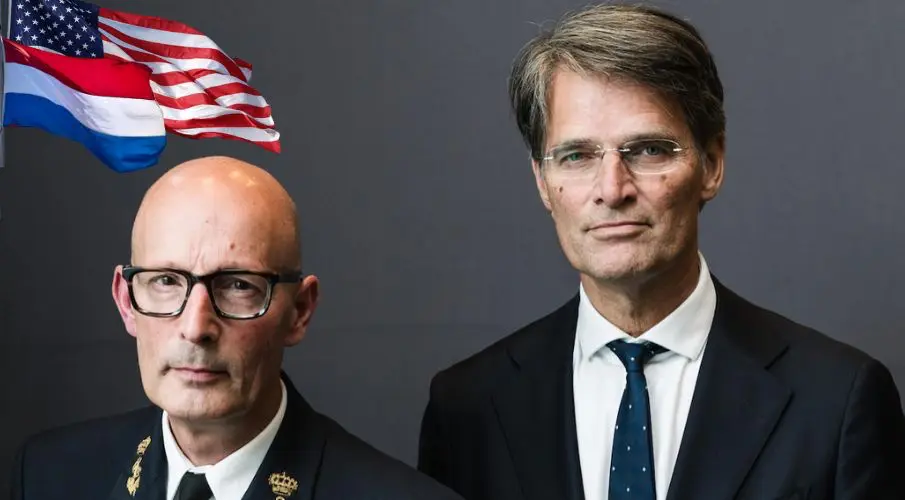A European warning signal came in the form of a sentence, as cool as it was controlled: "Sometimes we simply no longer tell certain things." No affront, no scandal - just a sober admission from The Hague that echoed in Washington like a thunderclap. Peter Reesink, director of the Dutch Military Intelligence and Security Service (MIVD), described something that had long remained unspoken: the beginning of Europe’s withdrawal from the unconditional data alliance with the United States. Together with Erik Akerboom, head of the civilian intelligence service AIVD, Reesink confirmed in an interview with de Volkskrant that the Netherlands has restricted its information sharing with American authorities. What was once taken for granted - a constant, almost automatic exchange of sensitive intelligence between the CIA, NSA, and European partners - now comes with reservations. "We are more careful," Reesink said. "And sometimes we hold something back."
That this pause comes from a country that ranks among the closest and most technologically advanced NATO members is remarkable. The Netherlands has traditionally been closely linked to the U.S. intelligence community, its analysts are considered precise, its cyber capabilities among the best. When even they begin to slow the flow of information, it is less a technical than a political message. The reasons are manifold, but they revolve around one core: trust. Since Donald Trump’s return to the White House, European security circles say the relationship has become more complicated. Too often, Washington has politically instrumentalized intelligence, too often it has been pulled into internal power games. "You can no longer be sure that information stays where it belongs," said a former AIVD employee.
Added to this is concern for human rights - a topic that has become firmly anchored in European intelligence services. While the U.S. continues to justify extensive surveillance powers and military drone operations backed by intelligence, the Netherlands has tightened its internal ethical guidelines. Information that could be used for targeted killings or unlawful detentions has since been withheld. "It is a moral line we do not want to cross," explained an MIVD insider. Yet behind the moral stance also lies strategy. Europe is trying to emancipate itself from America’s digital dominance. In The Hague, Berlin, and Copenhagen, networks are emerging that exchange sensitive data on cyber threats, Russian activities, or Chinese industrial espionage - independent of American channels. It is what an EU diplomat called a "shadow NATO": a structure that operates where Washington is no longer taken for granted.
Since the Snowden revelations, the NSA spying scandal involving Angela Merkel’s phone, and several leaks about U.S. operations in Ukraine, trust in transatlantic data security has been shaken anyway. In this climate, Reesink’s sentence does not sound like an affront but like a logical consequence. Trust, once damaged, cannot be replaced by declarations of intent, only by restraint. Officially, The Hague emphasizes that relations with the U.S. remain "close and reliable." Unofficially, they speak of "trust-based differentiation" - a diplomatic formula for selective mistrust. While the rhetoric still speaks of friendship, operational data has long been diverted into smaller, European channels.
At the same time, Dutch politics shows how selectively principles are now applied. It was not the government itself but the parliament that passed a motion in September to classify Antifa as a terrorist organization following the U.S. model - a step that so far has no legal effect but resounds politically. For an actual ban does not exist; it remains a symbolic demand. This measure contradicts the claim to uphold human rights and the rule of law - picking out exactly those elements from U.S. policy that grant the domestic government more power, while leaving other, more dangerous imports to the Americans.
For Washington, this is more than a symbolic loss. When even loyal partners begin to filter, it shows how deep the uncertainty runs. The United States, long seen as the guarantor of Western order, increasingly appears as an unpredictable actor - a country that uses its secrets to make politics instead of protecting it. The Dutch course is therefore more than an administrative adjustment. It is a quiet warning: that loyalty in a world of data cannot be unconditional. Those who share information share responsibility - and those who hold it back draw lines where trust ends. Or, as Reesink put it: "Sometimes we no longer tell certain things - not because we turn away. But because we have learned to listen to who is listening."
Investigative journalism requires courage, conviction – and your support.
Please also strengthen our journalistic fight against right-wing populism and human rights violations. We do not want to finance ourselves through a paywall so that everyone can read our research – regardless of income or origin. Thank you very much!


Danke für diesen Artikel. Ich denke die Niederlande haben die richtige Entscheidung getroffen und das sollte unsere Regierung auch tun.
Solange Trump und seine Handlanger an der Macht sind, kann man nicht vorsichtig genug sein welche Informationen man teilt.
gerne und vielen dank
Dieser Entscheidung sollten sich andere Länder anschließen.
Mit dem Möchtegern-Diktatur ist jede Information potentiell gefährlich für die eigene Landessicherheit.
Schlimm genug, dass Frau von Storch damit prahlt, Informationen an die Trump Regierung weiter zu leiten.
Und Palantir auch nicht zu vergessen.